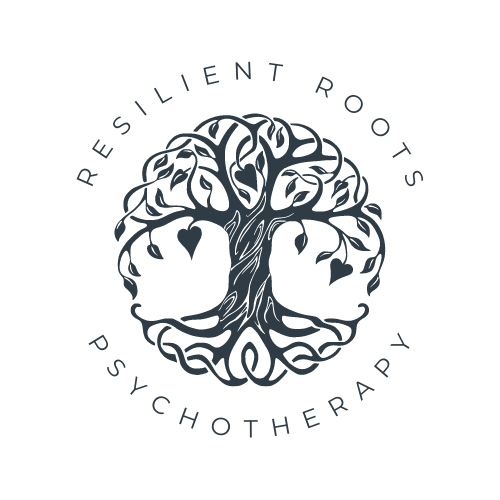move through grief.
Therapy for Grief
Grief is a normal part of the human experience
when we face loss.
Although we typically think of grief in the context of death, grief can occur when we experience transitions in life, such as the end of a significant relationship, moving to a new city, the diagnosis of a medical condition,
or the loss of a job.
It's okay to feel the weight of these losses and the emotions that come with them.
It's understandable that you're feeling overwhelmed by the impact of your loss.
IF ANY OF THE FOLLOWING SOUND FAMILIAR,
YOU’RE NOT ALONE:
You’re experiencing a range of emotions, from sadness and despair to anger, guilt, and even numbness;
You feel a sense of disbelief or denial after the loss as if the reality of the situation hasn't quite sunk in yet;
You find it difficult to sleep, eat, or engage in self-care;
You feel like you're in a fog or walking around in a daze as if your mind is disconnected from your body;
You have feelings of loneliness and isolation after the loss, even if you have a support system in place;
You find yourself questioning your beliefs or your sense of purpose in life, or feeling like you're living in a world that no longer makes sense.
Let’s talk about…
What the loss means to you
Navigating life after loss
Anxiety, depression, and anger
Feeling unable to move forward
Honoring your loved one, grieving what could have been, and anything else that you’re struggling with as you move through grief.
It may feel like the weight of your loss is too heavy to bear.
It might seem like the pain will never go away, and moving on without your loved one feels impossible. But I am here to tell you that healing from grief is possible. It won't be an easy or linear process, but you can get to a place where you can remember your loved one with love and honor,
rather than just pain and sadness.
You don't have to go through this alone.
Therapy for grief can help you:
Process your feelings of grief and loss;
Help you understand and manage the many emotions and thoughts that come with grief, such as sadness, anger, and guilt;
Support you in developing coping strategies that work for you to manage difficult emotions and move forward;
Assist you in building a support system that can help you when you’re struggling;
Guide you towards acceptance of the loss in a way that is compassionate and meaningful to you.
At the end of the day, I want you to know:
There is no timeline for grief. We all go through the five stages of grief in our own way. You don’t have to “get over it” or “move on,” but you can move
through it.
What we’ll work on
Imagine a life where you feel…
Emotionally balanced, with the ability to navigate your grief and the range of emotions it brings in a way that doesn't overwhelm you;
Grounded and connected to the reality of your loss, while still finding moments of peace and acceptance;
Restored in your self-care routines, with the capacity to sleep, eat, and care for yourself with more ease;
Present and engaged in your surroundings, where the fog of grief lifts, and you reconnect with the world and the people around you. Your sense of purpose is rekindled, and you find your place in a world that now makes sense once again.
Thoughtful Perspectives on Grief
Healing is possible.
Questions?
FAQs
-
Grief is a natural response to loss. It's a complex mix of emotions, thoughts, and behaviors that you may experience in response to losing someone or something important to you. Grief can be triggered by a variety of losses - not just the death of a loved one. The end of a relationship, the loss of a job, or any new beginning/end may contribute to grief.
-
While there are five stages of grief, it’s important to note that not everyone experiences the stages of grief in the same way. Grief is not a linear process and does not necessarily occur in any particular order.
The five stages are:
Denial: Disbelief or shock about the loss.
Anger: Frustration/anger about the loss expressed toward oneself or others.
Bargaining: Attempting to negotiate with a higher power or seeking ways to change the outcome.
Depression: Feeling overwhelmed with sadness.
Acceptance: Coming to terms with the loss and finding ways to move forward.
-
There isn’t a set timeline. Some people experience intense grief for weeks, months, or even years. The duration of grief can be influenced by many factors, such as the nature of the loss, how you cope, and your support system.
-
Grief therapy can be a helpful resource for anyone struggling to manage their emotions and adjust to life after a loss.
If you find that your grief is interfering with your ability to carry out daily activities or affecting your relationships, work, or physical health (e.g., trouble sleeping or eating, difficulty concentrating), it may be time to consider therapy.







